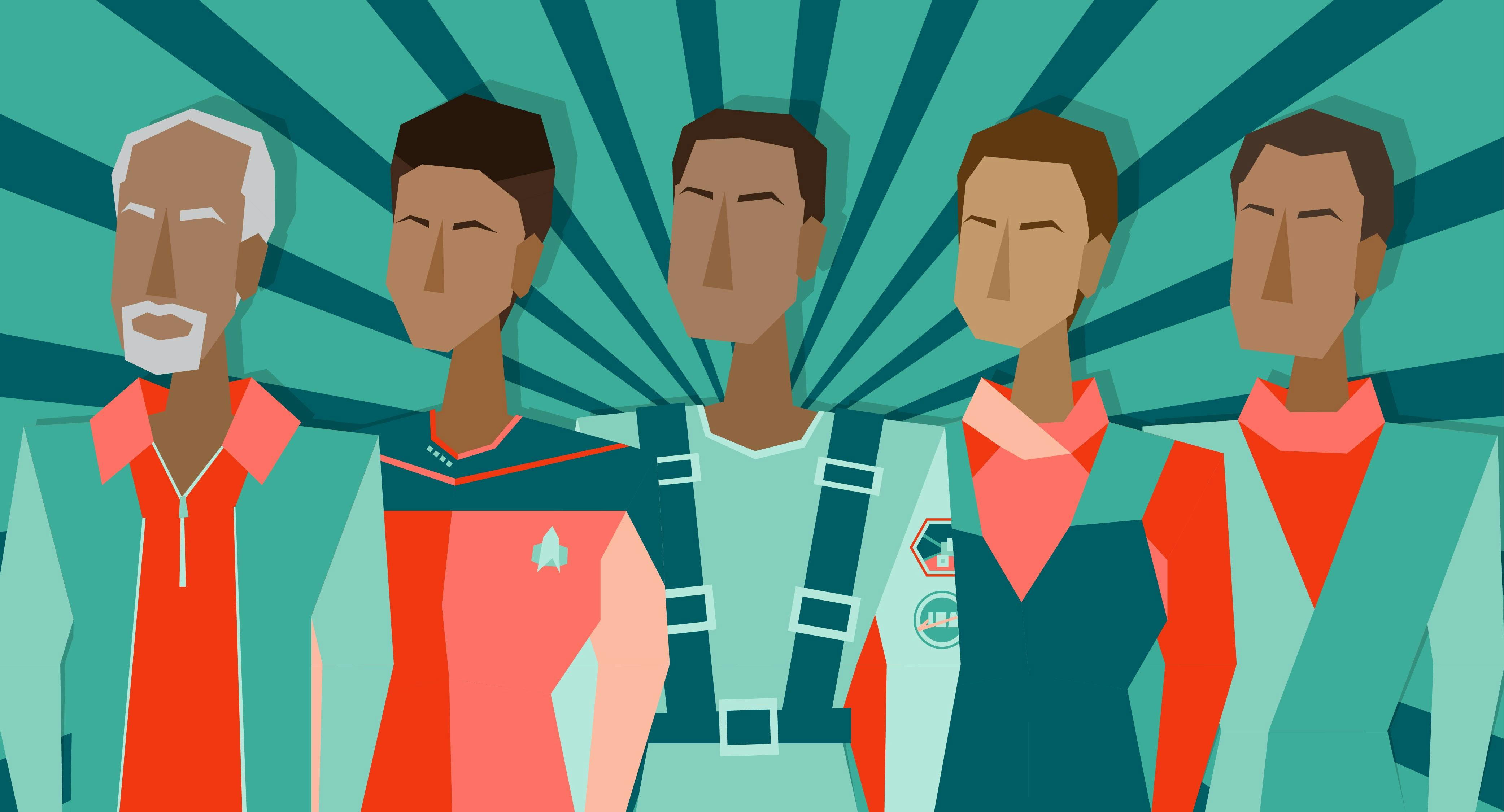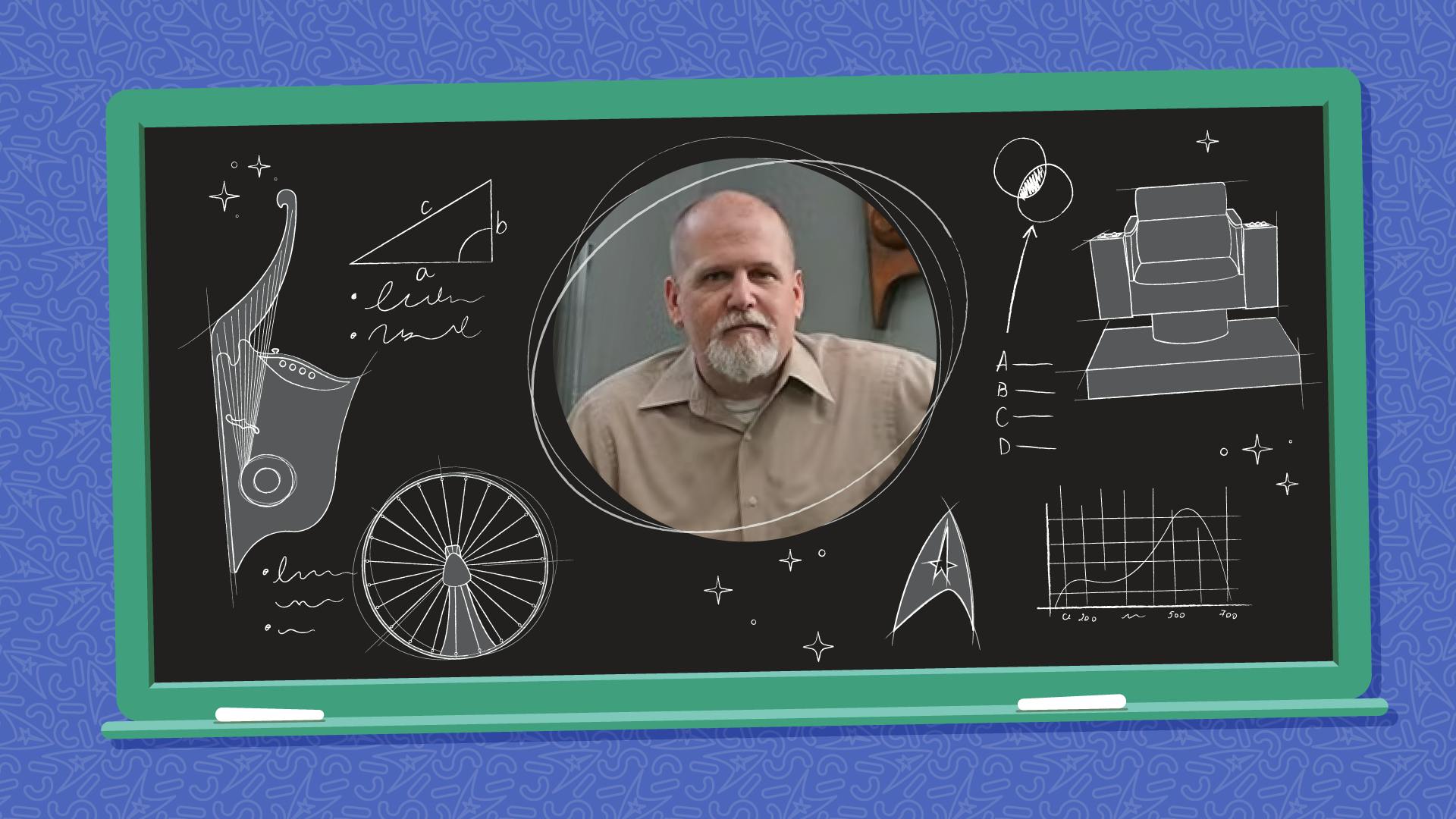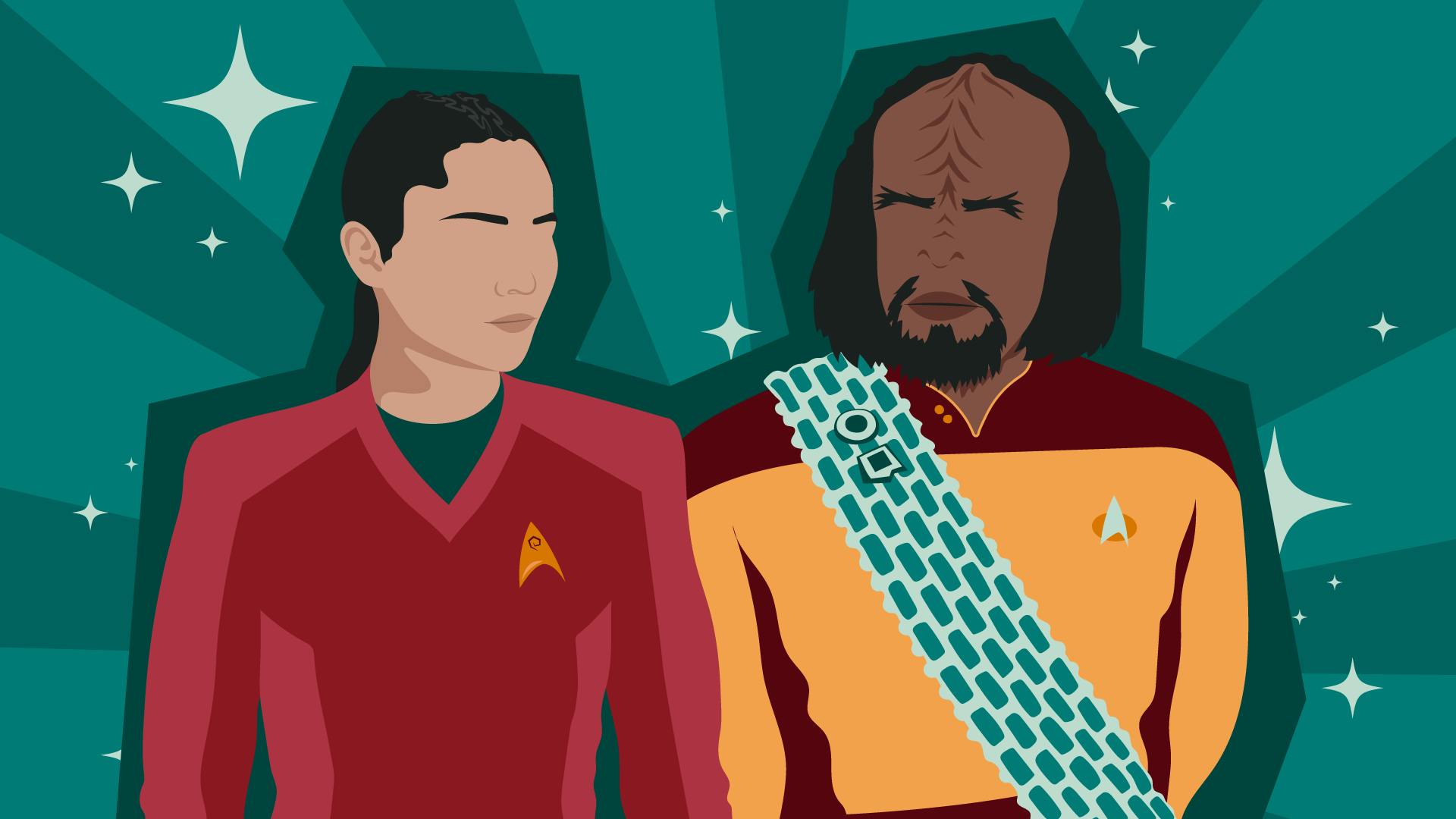Published Sep 6, 2023
Buck Bokai: The Last Boy of Summer
For Keone Young's birthday, we revisit what the final hero of baseball can teach us about humanity's future.
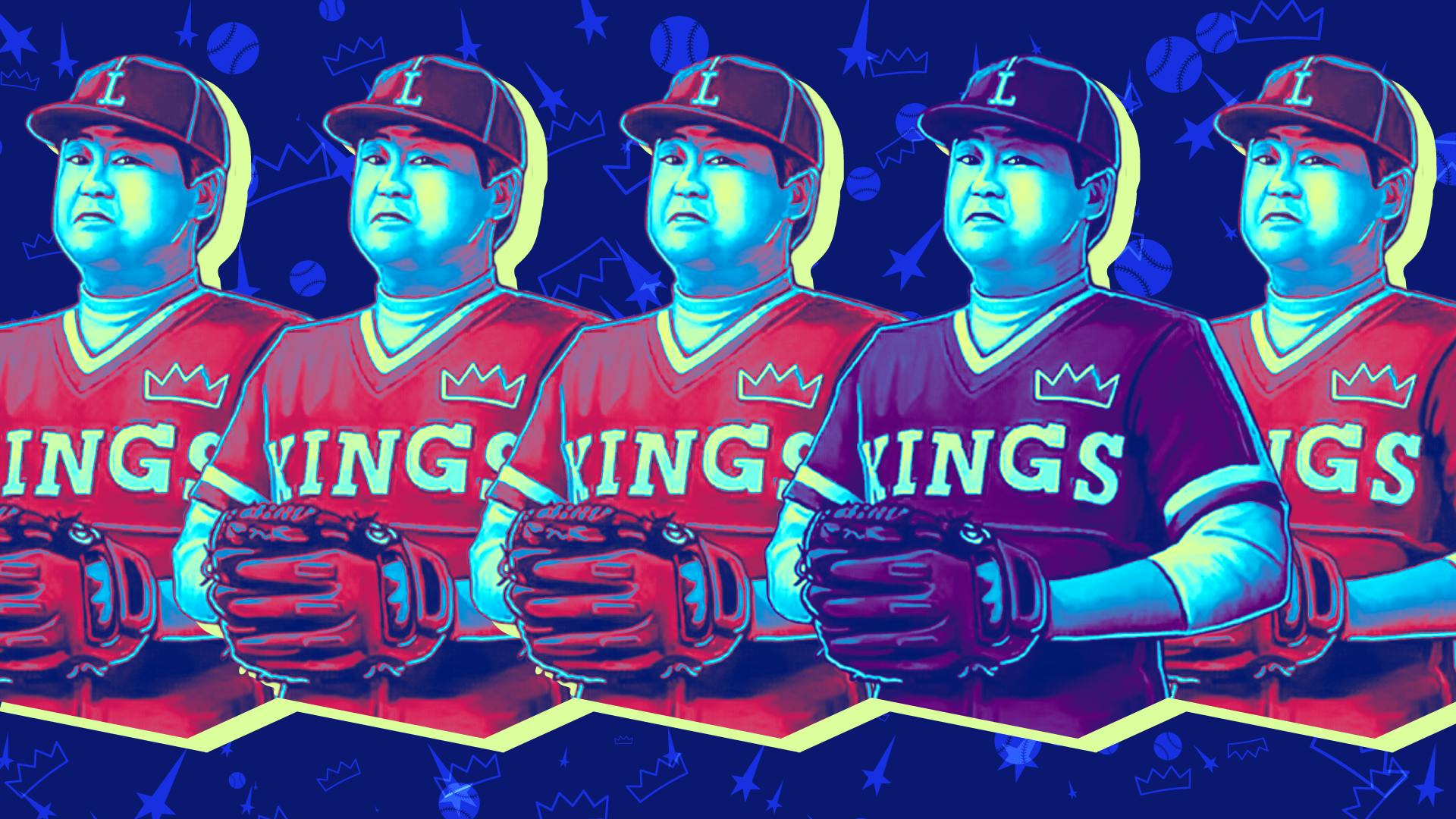
StarTrek.com
Here’s what we know: It’s 2026, and Buck Bokai is at the plate. Whether it’s his first at-bat, his third, or his sixth doesn’t matter; he has hit safely in 56 games in a row. It’s 2026, and with every at-bat, Buck Bokai might break a Major League record that has stood since 1941. The pitcher hurls the ball at the plate — what kind of pitch lost to history — Bokai swings and makes contact. The sound of wood on leather rings out, sharp and sweet, but it’s a ground ball. Bokai runs. Fielder Eddie Newsom tries to make a play, but the ball just squeaks out under his glove. Bokai is safe. 57 games. A new record. A legend for all time.
Here’s what we know: It’s 2042, 16 years later, and Buck Bokai is at the plate. He isn’t such a young man anymore. Baseball isn’t such a young sport, either. Invented in 1839, the game became the national pastime of America, and loved and played around the world. It survived corruption, scandal, steroids, and two world wars, but the world is turning sour again and it won’t survive a third. This is the final World Series. There are 300 people in the stands. The pitcher hurls his ball at the plate. Bokai swings, making contact. The sound of wood on leather rings out, louder than it should, and it’s a home run. He rounds the bases, touches home, and that’s it for baseball. So long, folks.
Buck Bokai (portrayed on by Keone Young) is one of Star Trek’s odder tragic figures.
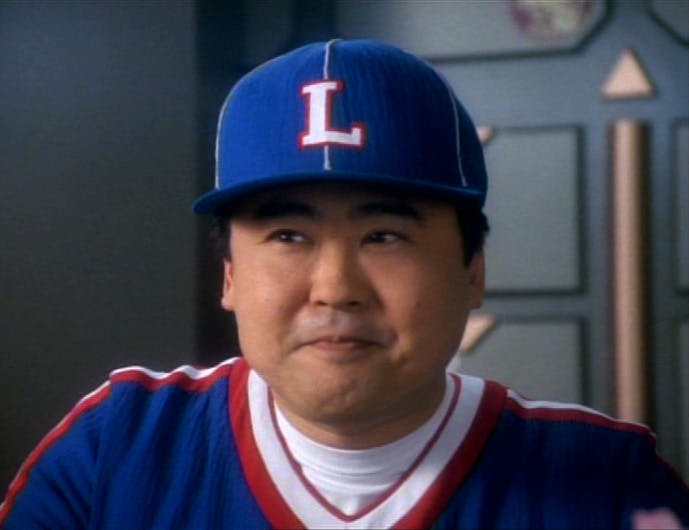
"If Wishes Were Horses"
StarTrek.com
A once-in-a-lifetime talent who peaked at the decline of his craft; he’s remembered solely, so far as we know, by an android playing a holodeck recreation of 20th Century San Francisco, the commanding officer of a space station perched tenuously at the mouth of the galaxy’s only stable wormhole, and that officer’s son. That he’s remembered at all is a miracle given the fate of the sport he played, and the fate of the world some years after he clubbed his last homer. Khan Noonien Singh, after all, was an obscure name in the database of the original starship Enterprise’s computers, and he was once the undisputed ruler of over a quarter of Earth. Were it not for the long memories of the sport’s few 24th Century devotees, Bokai’s life, his accomplishments, would have fallen to dust. Though the episode we see him in, “,” is more infamous than good, it’s a gift for anybody with an interest in the fabric of Star Trek’s vision of humanity’s future.
The Bokai who breaks DiMaggio’s hit streak is a nameless figure — a point of data recited by Data on Star Trek: The Next Generation because he’s learned the facts of 20th and 21st Century life to better fit into his captain’s Dixon Hill holo-novel. The Bokai that appears in Deep Space Nine is a fully realized man, one whose exploits inspire Benjamin Sisko, one of the Federation’s greatest heroes. He provides context for stories that take place in Earth’s distant past. He stands as a hero at the intersection of skill and chance. He is, by virtue of his existence, one of the few models we’re given for what becomes of human sport as we stretch out from Earth and take our place among the stars.
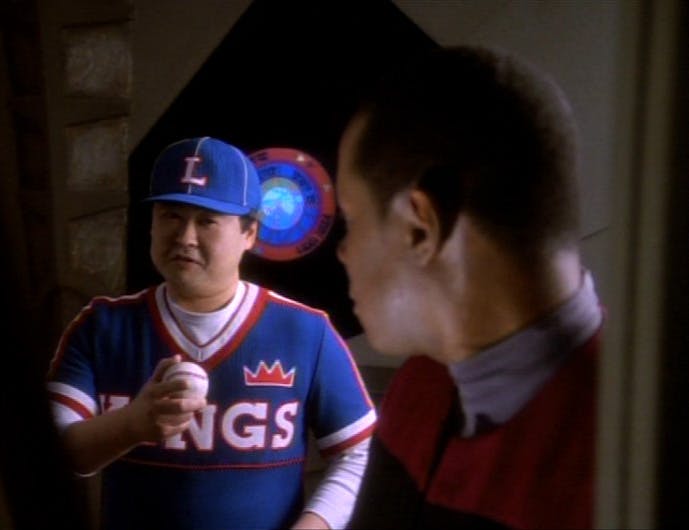
"If Wishes Were Horses"
StarTrek.com
Here’s what we know: Captain Jonathan Archer enjoys water polo. Lieutenant Commander Worf brutally learns the differences between human and Klingon physiology when he accidentally kills a classmate during a game of soccer. Captain Jean-Luc Picard loves to fence. Chief Miles O’Brien can’t help but kayak, even if it means tearing his rotator cuff. Dr. Julian Bashir, as a consequence of his genetic engineering, is too skilled to lose at darts. Dr. Phlox, a Denobulan serving on a human ship, hits shots effortlessly without truly grasping the concept of basketball. As humanity betters itself and encounters new species, its sports become obsolete. Springball, parrises squares, tsunkatse — these are the games of the future.
It makes sense. One of the quintessential assertions Star Trek makes about humanity is that we, as a species, are driven to seek out, introduce ourselves to, and live among others. We grow attached to the games those species play first as a means of finding a foothold in their culture, then because it presents the unending challenge of mastery. The same is not true of the species we meet. In 2375, the Vulcan Logicians visit Deep Space 9 and destroy Benjamin Sisko’s Niner’s 10-1. The Niners’ one-run is framed as a moral victory, but what’s a moral victory to a Vulcan? What is baseball to a Vulcan?
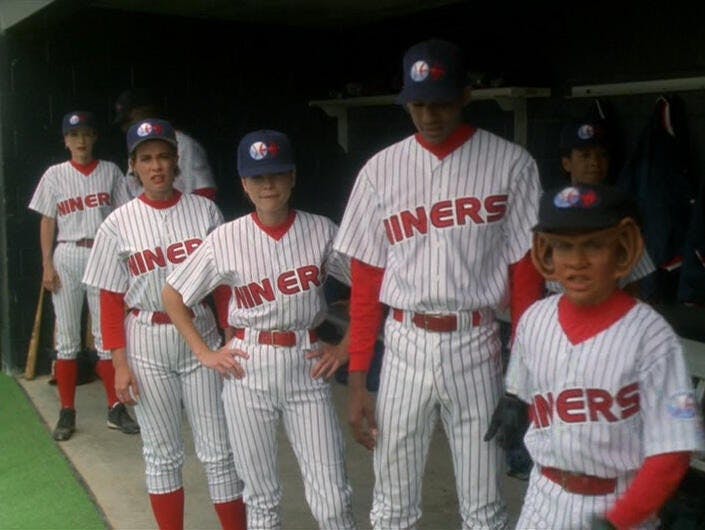
"Take Me Out to the Holosuite"
StarTrek.com
A nostalgist would say that baseball is a living connection to America’s past; though, I suspect Abner Doubleday wouldn’t recognize the game as it’s played today as the one he invented in a pre-Civil War America. It’s a global game, but not to the extent that Star Trek envisions. The Major Leagues have yet to become the Planetary League, and the Toronto Blue Jays are still the only foreign team eligible to play in the World Series. There are no teams in London, but it seems unlikely that the game is destined for an ignoble end in our time.
2019 is Buck Bokai’s rookie season for the Crenshaw Monarchs, and if the story of his career is that his genius is as obvious as it is under-appreciated, the same cannot be said for generational talents like Mike Trout or Vladimir Guerrero, Jr. Even the worst teams in memory, like my beloved 2003 Detroit Tigers, drew more than 300 fans to the ballpark. As long as there is time to pass, there’s baseball to be played.
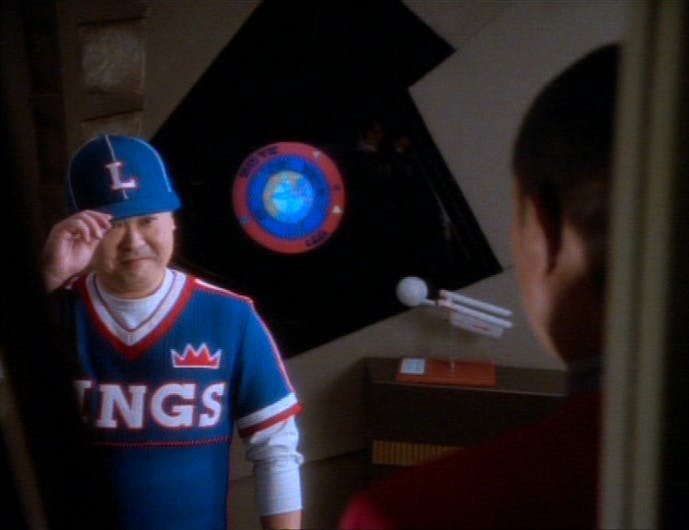
"If Wishes Were Horses"
StarTrek.com
Here’s what we know: It’s 2063, and humanity has no time left to pass. Zefram Cochrane takes his seat in the cockpit of Earth’s first warp-capable ship, the Phoenix, and his flight catches the attention of a Vulcan ship nearby. It’s been 20 years since Buck Bokai hit his last home run and, at least professionally, there are no home runs in his, or our, future. Buck Bokai is 65 years old. The game of baseball is 224 years old. Most games aren’t meant to last forever. The legacies of great men are often forgotten. Would Buck Bokai be Benjamin Sisko’s favorite ballplayer had he struck out, the count 3-2, his legacy that he merely tied with Joltin Joe? Would he be Sisko’s favorite ballplayer without the tinge of tragedy and finality that came with his last swing of the bat?
Baseball, like many sports, is a medium through which humans tell stories about themselves. In 2063, we learn that there is more to the universe than humanity, a vast number of races with whom we wish to communicate. Try explaining the rules of baseball to someone who doesn’t like baseball. Now try explaining the rules of baseball to an alien. What’s more interesting to an interplanetary visitor — the man who broke the warp barrier, or the intricacies of the in-field fly rule? Buck Bokai was a great baseball player, but his role in human history is to haunt a corner of it, a story written in a dead language and passed from one hobbyist to the next. It’s not that he’s the last boy of summer. It’s just that summer eventually comes to mean something else.
